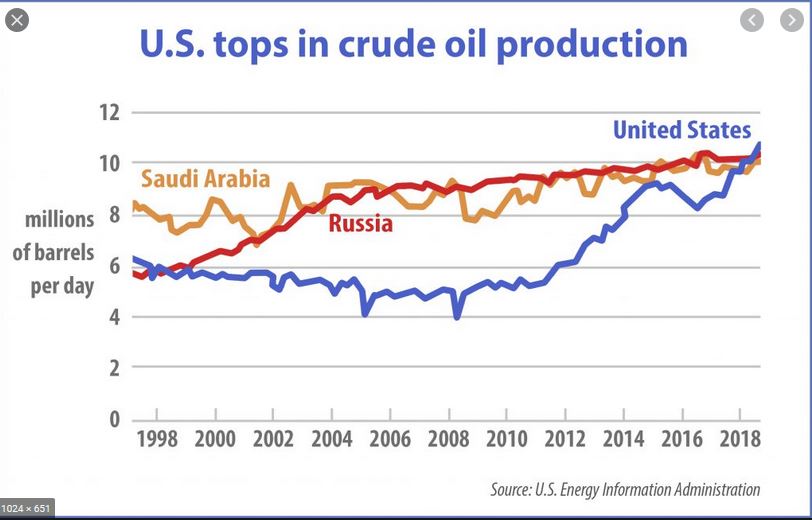The Wall Street Journal today published some excellent graphs illustrating the glut in world and US oil inventories. Click on images to enlarge. Article is here.
The Wall Street Journal today published some excellent graphs illustrating the glut in world and US oil inventories. Click on images to enlarge. Article is here.
Texas Railroad Commissioner Ryan Sitton announced today that he would withdraw his motion to prorate Texas oil production prior to the Commission hearing tomorrow, saying “proration is now dead.” Commissioner Christian had previously announced his opposition; Commissioner Craddick is evidently also opposed.
Commissioner Ryan Sitton has published his proposed conditional order imposing proration on oil production in Texas, to be considered at the Commission’s hearing on May 5.
Commissioner Wayne Christian, in an op ed in the Houston Chronicle, has come out against the proposal.
Sitton’s proposed order is attached to the Commission’s May 5 hearing agenda. His proposal follows the recommendation he described at the Commission’s prior open meeting on April 14. The Commission received 888 comments prior to that meeting, and more than 50 individuals presented live comments during the meeting.
The Texas Railroad Commission at open meeting today considered Pioneer and Parsley’s petition asking the Commission to institute oil proration. Commissioner Sitton moved to institute proration, conditioned on other states and countries committing to a total of 4 mm bbls/day additional reduction in oil production by June 1. Sitton’s motion provided that each Texas operator would be required to reduce its production by 20% effective June 1, amounting to 1 mm bbls/day of Texas production, but exempting operators producing less than 1,000 bbls/day. Sitton got no second on the motion.
Commissioner Christian announced he has appointed a blue-ribbon panel to study the issue. He named only associations – TxOGA, TIPRO, Panhandle PRA,O and Permian Basin PA, and Pipeline Association — and not individuals, to be on that panel.
Commissioner Craddick said she wanted staff to present “all options” for how to institute proration and wanted guidance from the Texas Attorney General as to what was legal before taking any action, commenting that any action by the Commission is bound to end up in litigation.
The Texas Railroad Commission heard comments yesterday in a virtual open meeting on the proposal from Pioneer and Parsley that the Commission re-institute proration of Texas oil wells in response to the drastic reduction of world oil demand. Unsurprisingly, those providing comments did not agree.
In general, the division was between majors and independents – though not totally.
Marathon, Ovintiv, and Diamondback opposed proration, as did TxOGA, Texas Alliance of Energy Producers, the American Petroleum Institute, Texas Pipeline Association, Plains All American Pipeline, and Enterprise Products Partners. Parsley and Pioneer testified in favor of proration, as did Latigo Petroleum, Discovery Operating, Elevation Resources, and former Railroad Commissioner and Congressman Kent Hance. Surprisingly, Quantum Energy, a major independent, testified in favor. In addition, the following provided written comments in favor of proration: Continental Resources, CrownQuest, Hibernia Resources, Texas American Resources, the Panhandle Producers and Royalty Owners Association, and Permian Basin Petroleum Association. Those submitting written comments opposing proration included Chevron, Cimarex, Concho, ConocoPhillips, EOG, Occidental, TXO, and former Commissioner Michael Williams. Written comments can be viewed on the Commission website, here.
Arguments against proration included: Continue reading →
Two studies by University of Texas’ Jackson School of Geosciences analyzed data on water use in eight major US shale plays from 2009 to 2017. The first study, published in Environmental Science and Technology, quantifies how much water is produced from wells and how much is need for hydraulic fracturing. The second, published in Science of the total Environment, assesses the potential for using produced water in other sectors, including agriculture. UT’s announcement and summary of the studies can be found here. The announcement includes this:
Oil plays produced much more water than natural gas plays, with the Permian Basin producing about 50 times as much water as the Marcellus in 2017. As far as recycling potential for hydraulic fracturing, the research shows that in many cases there’s plenty of water that could be put to good use. For instance, in the Delaware Basin, which is part of the larger Permian Basin in Texas, scientists found that projected produced water volumes will be almost four times as great as the amount of water required for hydraulic fracturing.
Managing this produced water will pose a significant challenge in the Delaware, which accounts for about 50% of the country’s projected oil production. Although the water could theoretically be used by other sectors, such as agriculture in arid West Texas, scientists said water quality issues and the cost to treat the briny water could be hurdles. In addition, if the water is highly treated to remove all the solids, large volumes of salt would be generated. The salt from the produced water in the Delaware Basin in 2017 alone could fill up to 3,000 Olympic swimming pools.
The failure of Saudi Arabia and Russia to agree on reductions in oil production, combined with the crash in demand caused by COVID-19, are blamed for the rapid decline in oil prices and the glut in supply. But looking back, it can be argued that another cause is the rapid rise in US oil production since 2010.
 US producers have relied on OPEC to regulate the world oil price, while ramping up their production. Maybe US producers should take some responsibility as well.
US producers have relied on OPEC to regulate the world oil price, while ramping up their production. Maybe US producers should take some responsibility as well.
Texas accounts for 41% of US oil production, and increased production from the Permian is the principal driver of increased oil production in the US.
Pioneer Natural Resources and Parsley Energy sent a letter to the Texas Railroad Commission formally requesting that it institute proration in Texas oil fields. Scott Sheffield and Matt Gallagher concluded:
We thus implore you to act as stewards of Texas’s oil resources and to support rationally tailored actions – consistent with the Commissions state mission – to “enhance development and economic vitality for the benefit of Texans.” As the chief executive officers of the second and tenth largest oil producers in the State of Texas, we are responsible for the employment of thousands of employees by our companies and our contractors. It is on their behalf, as well as other companies that share our concerns, that we submit this request.
Read the letter here: Parsley Pioneer letter to RRC
Another recent bankruptcy court ruling may bode ill for producers and royalty owners in Texas in light of the collapse of oil prices and increased risks of bankruptcy of producers and oil purchasers. In Re: First River Energy, LLC, 2019 WL 1103294(US Bankr. W.D. Tex., March 7, 2019), also highlights a fix to the First Purchaser Statute the Texas legislature needs to address.
The oil industry in Texas fell on hard times in the early 1980’s. Several large oil purchasers filed for bankruptcy, leaving many royalty owners and producers unpaid. In response the Texas  Legislature passed a law intended to give producers and royalty owners a better chance to recover their monies in bankruptcy court. The statute is now Section 9.343 of the Texas Business and Commerce Code, which is Texas’ version of the Uniform Commercial Code (UCC). All states have passed their version of the UCC. The UCC is intended to govern rights of parties in commercial transactions; the intent of having a “uniform” code in all states is to ensure that such transactions will not be hindered by differing laws from state to state. Article 9 of the UCC governs security interests granted in “goods” and proceeds from the sale of goods. “Goods” includes oil and gas, once they have been produced. So, the UCC, and particularly Article 9, govern how security interests are granted in produced oil and gas and in proceeds from the sale of oil and gas and the priority among creditors claiming security interests in oil and gas and proceeds. Continue reading →
Legislature passed a law intended to give producers and royalty owners a better chance to recover their monies in bankruptcy court. The statute is now Section 9.343 of the Texas Business and Commerce Code, which is Texas’ version of the Uniform Commercial Code (UCC). All states have passed their version of the UCC. The UCC is intended to govern rights of parties in commercial transactions; the intent of having a “uniform” code in all states is to ensure that such transactions will not be hindered by differing laws from state to state. Article 9 of the UCC governs security interests granted in “goods” and proceeds from the sale of goods. “Goods” includes oil and gas, once they have been produced. So, the UCC, and particularly Article 9, govern how security interests are granted in produced oil and gas and in proceeds from the sale of oil and gas and the priority among creditors claiming security interests in oil and gas and proceeds. Continue reading →
What a month.
We are all under the illusion – especially in the West – that we have some control over our lives. COVID-19 has reminded us to the contrary. It is humbling. We can’t see into the future, but what we can see does not look good.
We are asked to stay home, to practice social distancing, to halt commerce and tank the economy. All to prevent something that seems (until recently at least) distant and contingent. We are learning that the only way to prevent the spread of this virus is to act preemptively, before it has attacked. This goes against our instinct as humans. Social distancing has reminded us that we are social animals, that we crave human contact. Conference calls and video conferencing are a poor substitute.